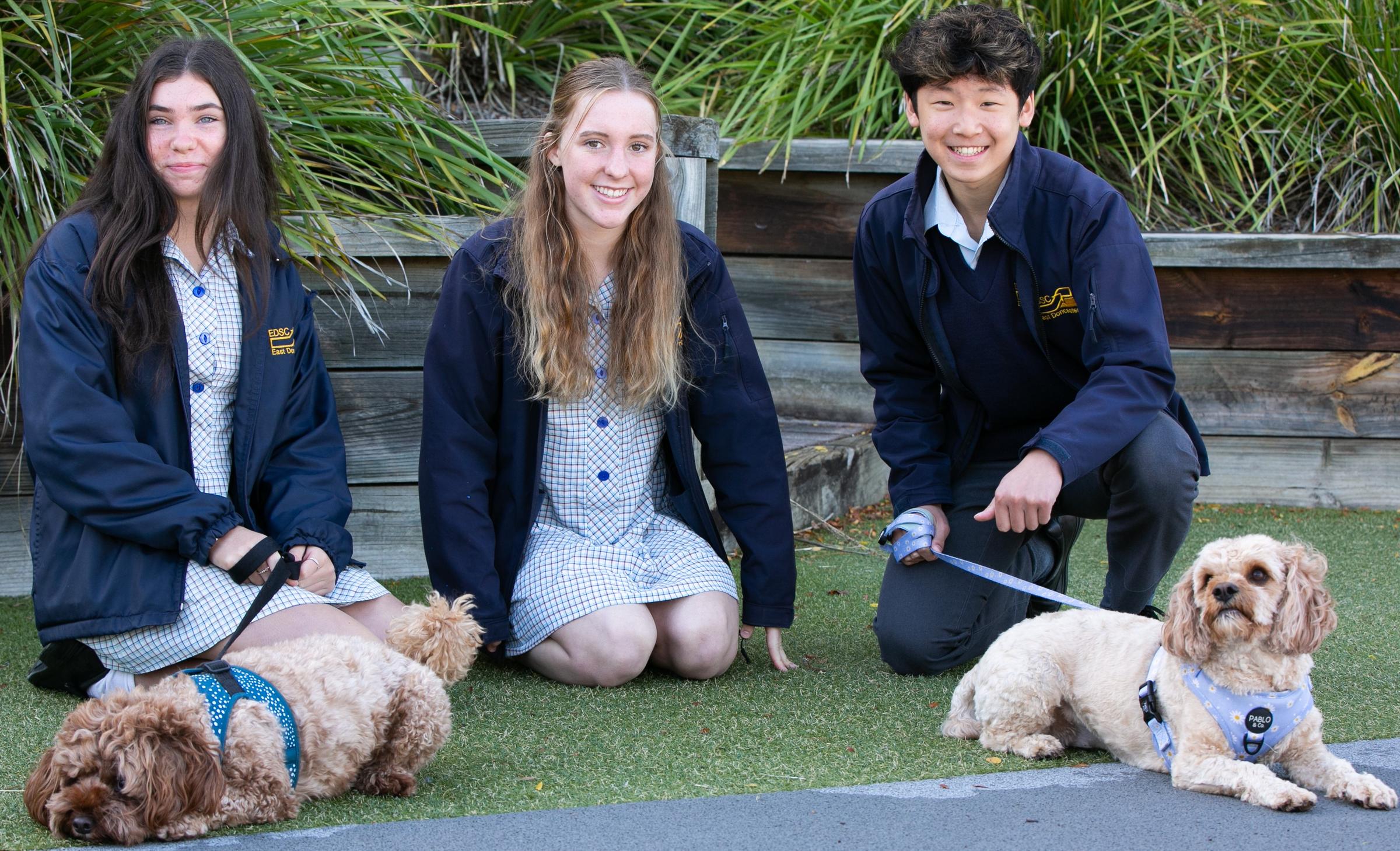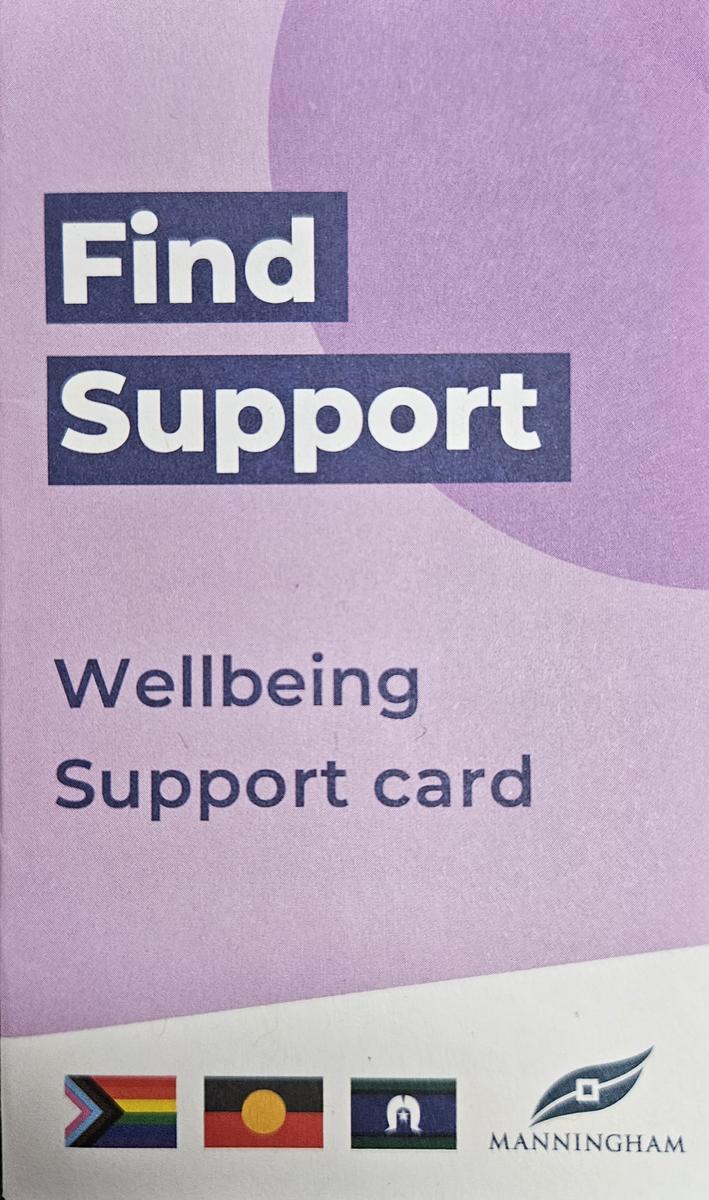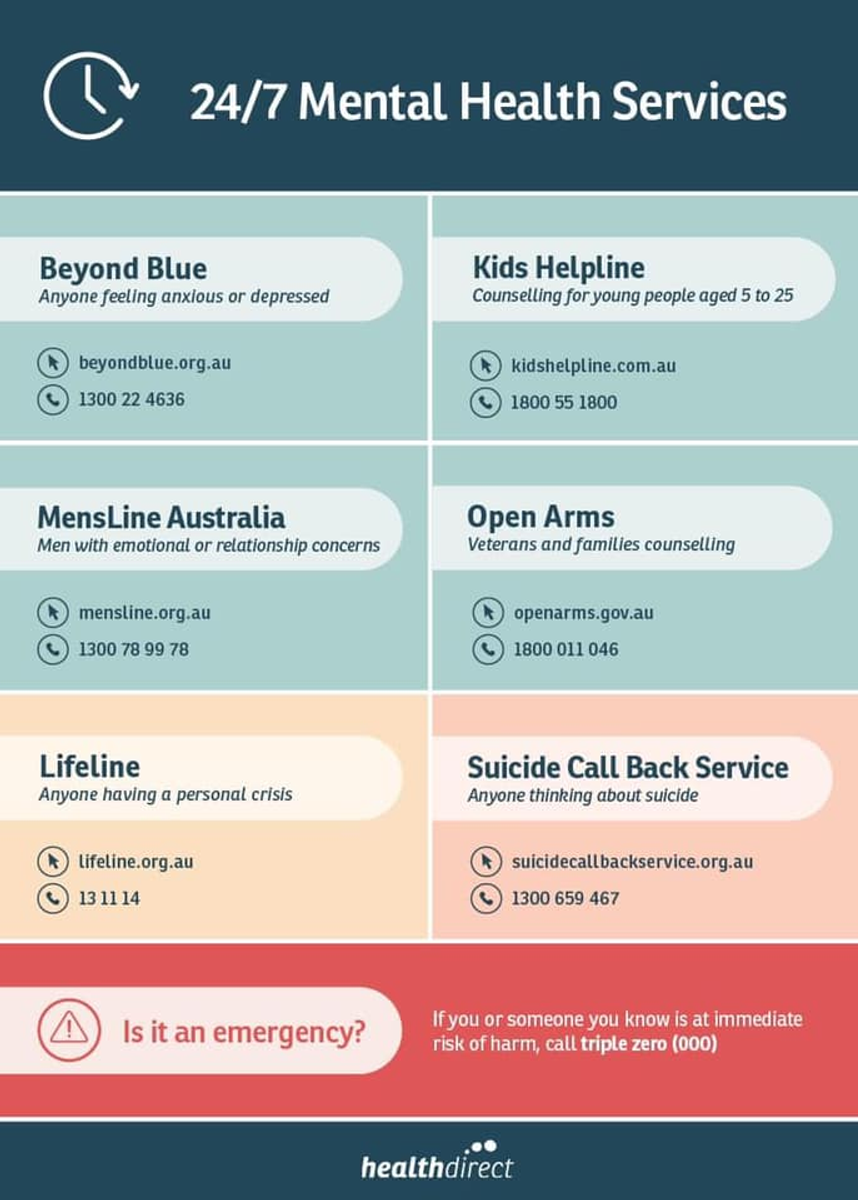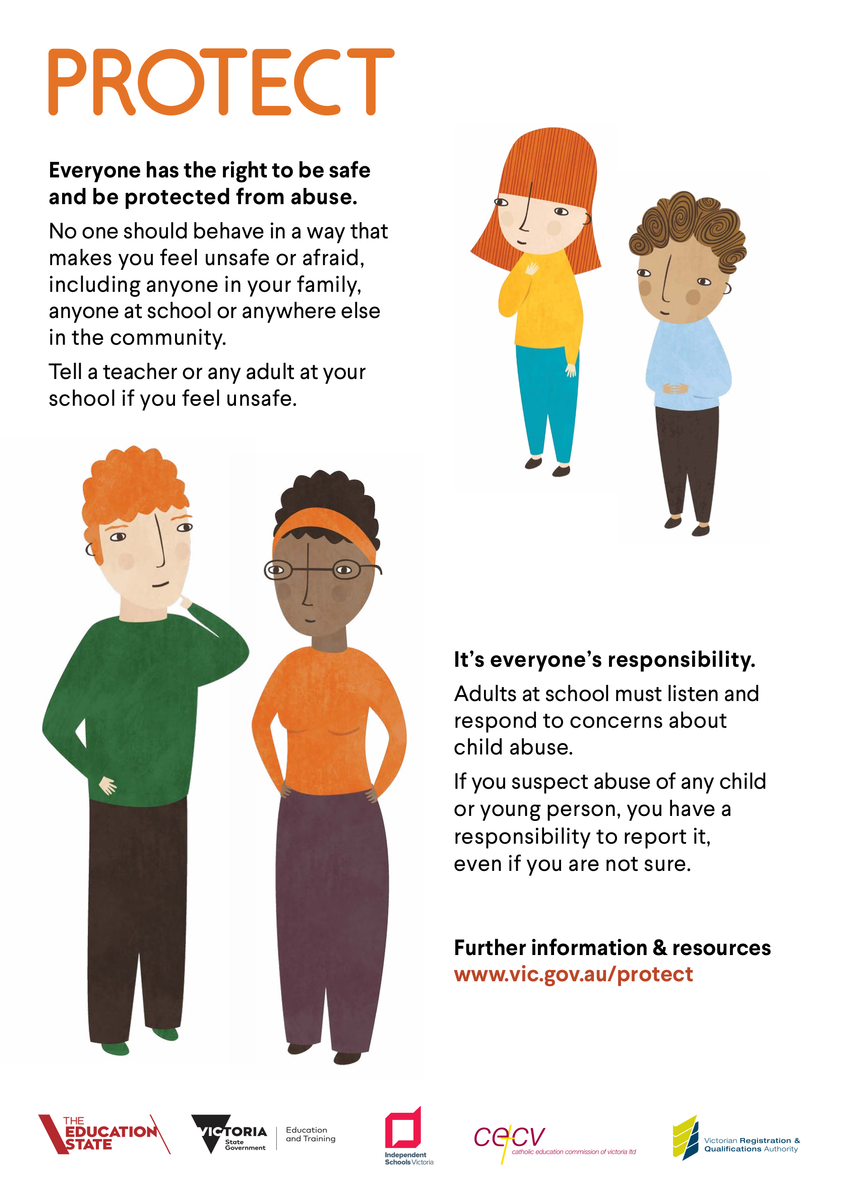
Student Wellbeing News
Find Local Crisis Support Services
Dear EDSC Community,
Manningham Council is pleased to announce the release of their latest Wellbeing Support Card. We know that anyone could come across challenging times, so they developed this Card as a first point of reference to access services during a time of need. This card contains support contact details for Mental Health Support, Carers Support, Alcohol and Other Drugs Support, Family Violence, Gambling Support, Food Relief and Crisis Accommodation.
The card also contains a QR code that links to their website with a more comprehensive directory of support available to our Manningham community.
You can find the Wellbeing Cards at the General Office, Wellbeing Hub, Middle and Senior School offices, or click on the link below:
https://www.manningham.vic.gov.au/assistance-and-support-services/find-local-crisis-support-services
Amal Saleh-Zada
Director of Wellbeing
How We Can Support Our Children During VCE Exam Release
I hope this article finds you and your family in good health. As we are aware, VCE concluded for Year 12s some time ago, and your children will receive their results on Monday 11 December. Thanks to the internet and broadcasts, we have gathered information on how to support our children both before and during the VCE exams.
However, one aspect we rarely discuss is the period of waiting for the results. It seems we often assume that our children will be fine after the exams. Is this assumption accurate? While we recognize that VCE is not the ultimate endpoint, we understand that, for your children, it represents the most significant test they've faced so far—a substantial milestone at this stage in their lives. The waiting period can be particularly stressful for them, especially as they struggle to envision the potential consequences of receiving less-than-desirable results.
It's crucial for us, as parents, to acknowledge and address their concerns during this uncertain time. Here is some advice you can do to support your children before, during and after the result release.
希望这一篇文章可以帮你。正如我们所知,VCE已经结束了一段时间,您的孩子将在接下来的两周内收到他们的成绩。感谢互联网和广播,我们已经知道如何在VCE考试之前和期间支持我们的孩子。
然而,我们很少讨论的一个方面是等待成绩的时期。似乎我们经常假设我们的孩子在考试后会没事。这个假设是正确的吗?虽然我们明白VCE并非终点,但对于您的孩子们来说,这是迄今为止面临的最重要的考验,是生活中一个重要的里程碑。等待成绩期间对他们来说可能特别有压力,尤其是当他们想象自己的成绩不理想成绩的时候。这里有一些建议,可以在孩子们在成绩公布前、期间和之后提供支持。
Before the day come/放榜前
- Before they know the result, understand your child’s expectation, thoughts and plan for the future. Remember please do not only focus on the VCE result, otherwise it will stress your children.
放榜前 与子女保持沟通,了解他们的想法和需要,但不宜经常提及放榜,以免令 子女感到有压力。
- If they proactively discuss the release of exam results, parents should patiently listen, understand their thoughts, and pay attention to their emotional changes while offering appropriate support and care. In addition, parents should avoid criticizing them, allowing them to express themselves freely.
若子女主动谈及放榜的事宜,父母可耐心倾听,了解他们的想法,同时留意对方的情绪变化,适切表示支持和 关心。此外,父母亦要避免批评子女,让他们能 畅所欲言。
During the day /放榜日
- Parents can send text messages or make phone calls to them to check on their situation and emotions, but they should avoid excessive contact to prevent them from feeling pressured. If they need to make changes to their chosen courses, parents can first offer comfort and then discuss it with them later.
父母可传送短讯或致电子女,了解一下情况和他们的心情,但切忌联络过度,令对方感到受压。若子女 需要修改已选择的课程,家长可先加以安慰,稍后与他们商量。
- No matter what the result is, your child may feel stress or guilt for a whole day. It will be good if you can be with them.
不管子女的成绩如何,他们可能因为放榜而劳碌了一整天。父母可与子女吃一顿美味的晚。以示关心,亦可借此慰 劳子女,肯定他们的努力。
After the day /放榜后
- If children continue to feel down or emotionally low, parents can not only provide verbal comfort and encouragement but also show their concern through actions, such as cooking their favourite dishes or engaging in activities they are interested in, so they can feel the support from their family."
若子女持续感到沮丧或情绪低落,父母除了可在言语上多加安慰和鼓励,亦可透过行动来关怀子女,例如煮他们喜欢的菜式、陪伴他们做感兴趣的事情,让他们感受到家人的支持。
- Keep an eyes on their mood and behavior. Please contact the school or specialist if you think they need support.
多留意子女的情绪变化。如有需要,请联络学校或寻 求专业协助。
Harry Lee
Wellbeing Coordinator
Request for Uniform Donations
The Wellbeing Team provide second-hand uniforms for students in need. We are asking for uniform items, in good condition, be donated to the Wellbeing Team. Specifically, we are looking for dresses, shirts, pants, jackets and any sports uniform in larger sizes.
If you require uniforms for your child, please contact the Wellbeing Team for support.
Maddie Sill
Mental Health Practitioner
Cybersafety and Responsible Use of Digital Technologies
The following resources are available to parents and carers to assist them with guiding their children with the use of digital technology in a safe and responsible way. Parents and carers are their child's first role model when it comes to online behaviour. Please find information to assist parents and carers when dealing with Cybersafety issues:
https://www.esafety.gov.au/parents
https://www.education.vic.gov.au/parents/services-for-parents/Pages/parentline.aspx
https://www.esafety.gov.au/about-us/counselling-support-services
The following fact sheet may assist in encouraging the safe and respectful use of social media and to provide tips to parents for being a positive role model: https://www.education.vic.gov.au/Documents/about/programs/bullystoppers/parentsocialmediaschoolcommunity.pdf
If parents/carers have any questions regarding Cybersafety or Digital Learnings in Schools and our Mobile Phone Policy, please contact Reception.
Cameron Campbell
Assistant Principal
Food & Financial Support
As we are all aware, the cost of living is increasing. We realise that this might be causing some distress to members of the EDSC community. If you are experiencing financial difficulties or food insecurity please look at the website www.askizzy.org.au. This website can help you locate services for food, money, clothing, health & housing in your area.
The College is able to provide a range of food to families within the community. Foodbank Victoria provide EDSC fresh fruit, cereals, milk, different types of ready meals, fruit cups and messy monkey snacks. If you and your family are experiencing food insecurity, please contact the school to arrange a food collection. For a confidential conversation, please call Maddie Sill on 9842-2244.
Please also note that if your child forgets their lunch they can come to the Wellbeing Hub to access the pantry.
Wellbeing Team
Wellbeing Staff
For more information about Wellbeing at the College, please visit the following link ..
Child Safety Standards
East Doncaster Secondary College is committed to the safety and wellbeing of all children and young people. This will be the primary focus of our care and decision making.
East Doncaster Secondary College has zero tolerance for child abuse.
East Doncaster Secondary College is committed to providing a child safe environment where children and young people are safe and feel safe, and their voices are heard about decisions that affect their lives. Particular attention will be paid to the cultural safety of Aboriginal children and children from culturally and/or linguistically diverse backgrounds, as well as the safety of children with a disability.
Every person involved in East Doncaster Secondary College has a responsibility to understand the important and specific role he/she plays individually and collectively to ensure that the wellbeing and safety of all children and young people is at the forefront of all they do and every decision they make.
In our planning, decision making and operations, all personnel at East Doncaster Secondary College will:
- Take a preventative, proactive and participatory approach to child safety;
- Value and empower children to participate in decisions which affect their lives;
- Foster a culture of openness that supports all persons to safely disclose risks of harm to children
- Respect diversity in cultures and child rearing practices while keeping child safety paramount;
- Provide written guidance on appropriate conduct and behaviour towards children;
- Engage only the most suitable people to work with children and have high quality staff and volunteer supervision and professional development;
- Ensure children know who to talk with if they are worried or are feeling unsafe, and that they are comfortable and encouraged to raise such issues;
- Report suspected abuse, neglect or mistreatment promptly to the appropriate authorities;
- Share information appropriately and lawfully with other organisations where the safety and wellbeing of children is at risk; and
- Value the input of and communicate regularly with families and carers.









